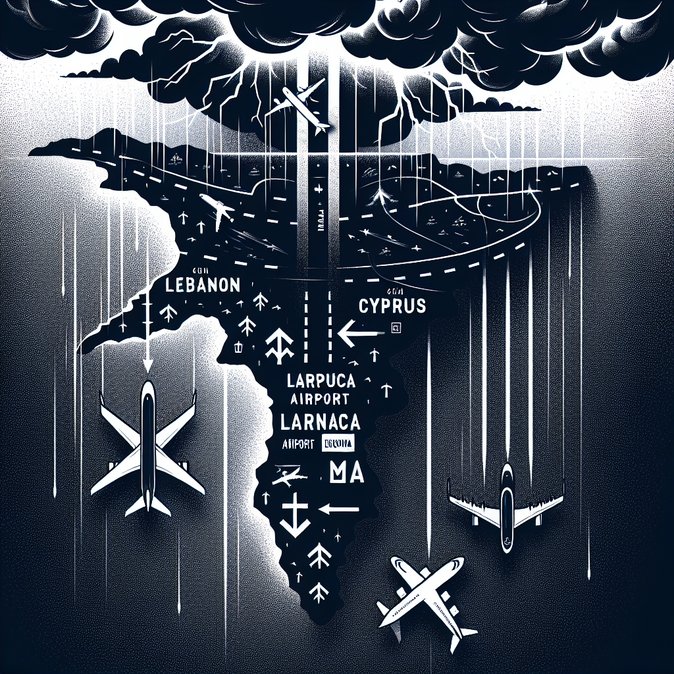
Three overnight flights bound for Beirut’s Rafic Hariri International Airport were forced to divert to Larnaca and Ankara in the early hours of 15 November after violent storms made landing unsafe. Two Middle East Airlines (MEA) services from Paris and Riyadh and an AJet flight from Istanbul circled before opting for Larnaca, where passengers disembarked briefly while crews refuelled and waited for weather to clear.
Cyprus’ air-traffic controllers activated their contingency plan for Eastern Mediterranean weather diversions, allocating remote stands and fast-tracking immigration for transit passengers without visas. The episode underscores Larnaca’s role as a regional diversion hub, particularly valuable for carriers whose alternative—Amman or Cairo—adds significant fuel burn.
![Severe storm forces Beirut flights to divert to Larnaca, testing Cyprus’ contingency capacity]()
Hermes Airports said the diversions were handled “without delay or security compromise,” but the incident again highlighted capacity constraints at the arrivals drop-off area, which is undergoing renovation. Airlines praised the quick turnaround: the MEA aircraft departed after roughly one hour on the ground and landed safely in Beirut once the storm had passed.
For corporate mobility teams, the key takeaway is to verify that travellers on Eastern Mediterranean itineraries hold Schengen-compliant travel documents or multiple-entry visas that allow unscheduled entries into Cyprus. Insurers may also wish to note that Larnaca’s diversion services are now included in IATA’s Global Safety Audit as of September 2025.
Meteorologists warned that climate variability is likely to generate more intense winter storm cells over the Levant, suggesting Larnaca could see an uptick in emergency arrivals—a factor that may accelerate calls to add extra parking stands in phase two of the terminal upgrade.
Cyprus’ air-traffic controllers activated their contingency plan for Eastern Mediterranean weather diversions, allocating remote stands and fast-tracking immigration for transit passengers without visas. The episode underscores Larnaca’s role as a regional diversion hub, particularly valuable for carriers whose alternative—Amman or Cairo—adds significant fuel burn.

Hermes Airports said the diversions were handled “without delay or security compromise,” but the incident again highlighted capacity constraints at the arrivals drop-off area, which is undergoing renovation. Airlines praised the quick turnaround: the MEA aircraft departed after roughly one hour on the ground and landed safely in Beirut once the storm had passed.
For corporate mobility teams, the key takeaway is to verify that travellers on Eastern Mediterranean itineraries hold Schengen-compliant travel documents or multiple-entry visas that allow unscheduled entries into Cyprus. Insurers may also wish to note that Larnaca’s diversion services are now included in IATA’s Global Safety Audit as of September 2025.
Meteorologists warned that climate variability is likely to generate more intense winter storm cells over the Levant, suggesting Larnaca could see an uptick in emergency arrivals—a factor that may accelerate calls to add extra parking stands in phase two of the terminal upgrade.


